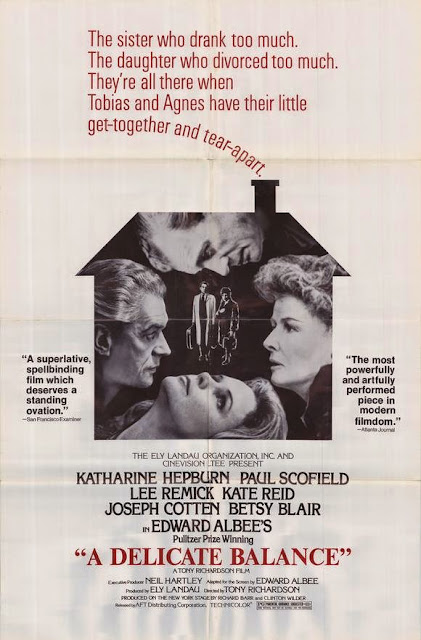An old saying holds that
directing is 90 percent casting. The trick, however, is
casting the right actor in the right role at
the right time. Consider The
Competition, a glossy romantic drama about two pianists who fall in love
while participating in a contest that will grant the winner instant access to a
career performing classical music at top venues. Richard Dreyfuss plays the
leading role of Paul Dietrich, a young man who has outgrown his child-prodigy
years and yet not fully realized his promise as an adult. With his arsenal of
off-putting sneers and uptight tics, Dreyfuss is completely the right performer
for this role. Unfortunately, because he was in his early 30s when he made the
picture, it’s an impossible accept him as a character who is presumably in his
early 20s, especially since Dreyfuss had already played several roles with gray
hair and a paunch. Director Joel Oliansnky and his collaborators try every
trick they can to put across the desired illusion—Dreyfuss wears distracting
makeup beneath his eyes, and other characters comment upon his “premature”
receding hairline—but these feeble efforts only make the issue more noticeable.
And so it goes, alas, for the rest of the picture, which boats intelligence and
wit but feels artificial and contrived in nearly every possible way.
The story,
which Oliansky cowrote with producer William Sackheim, is simple. Paul decides
to enter one last competition before giving up his dreams of musical glory for
a day job. Upon arriving in San Francisco for auditions, he encounters pretty
Heidi Joan Schoonover (Amy Irving), and they strike romantic sparks. Despite
his determination to remain focused, Paul falls for Heidi. She, in turn, finds
his earthiness refreshing since she comes from an insular, privileged
background. Oliansky interweaves the love story of these two characters with subplots
about other competitors, plus another subplot about Greta Vandemann (Lee
Remick), Heidi’s piano teacher, herself a former competitor.
Inexplicably,
Oliansky lets The Competition sprawl
across a bloated running time of more than two hours, even though the material
is paper-thin. Much of the excess happens during performance scenes, since Oliansky seems determined to show off the way his actors learned to mimic complex fingering. There’s
also a general languidness to the pacing, especially when actors stand in
perfect three-point lighting to deliver monologues that, one presumes, were
envisioned as Oscar clips. For a movie with a decent sense of humor, The Competition takes itself awfully
seriously. Still, the film is not without its emotional peaks, even if
Oliansky’s tendency toward overwritten schmaltz undercuts every sincere thing
that his actors try to accomplish. Oh, and fair warning: If you’re among those who find
Dreyfuss impossibly precious and smug, watching The Competition will not change your opinion.
The Competition: FUNKY










